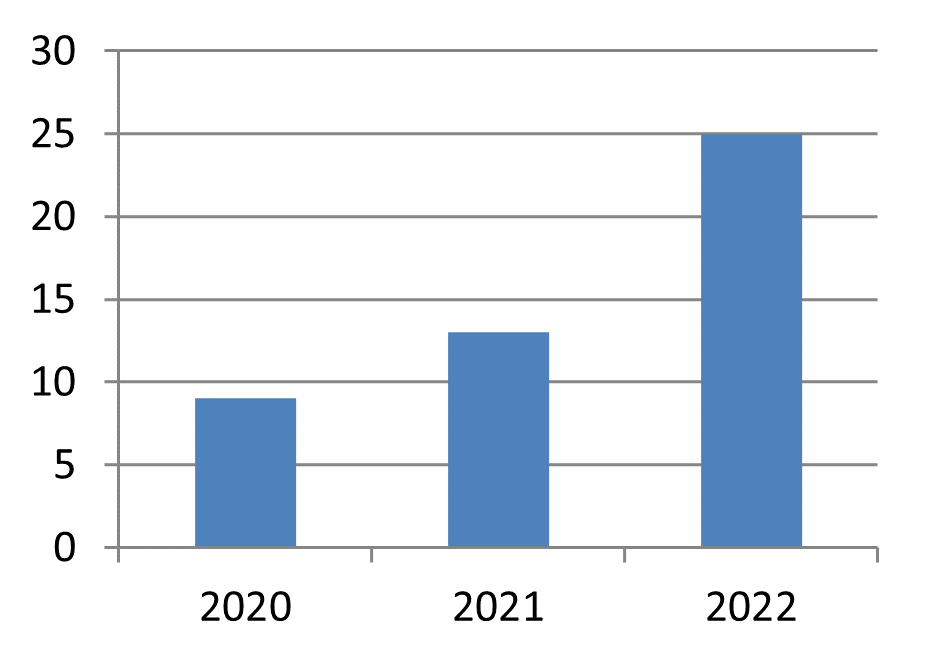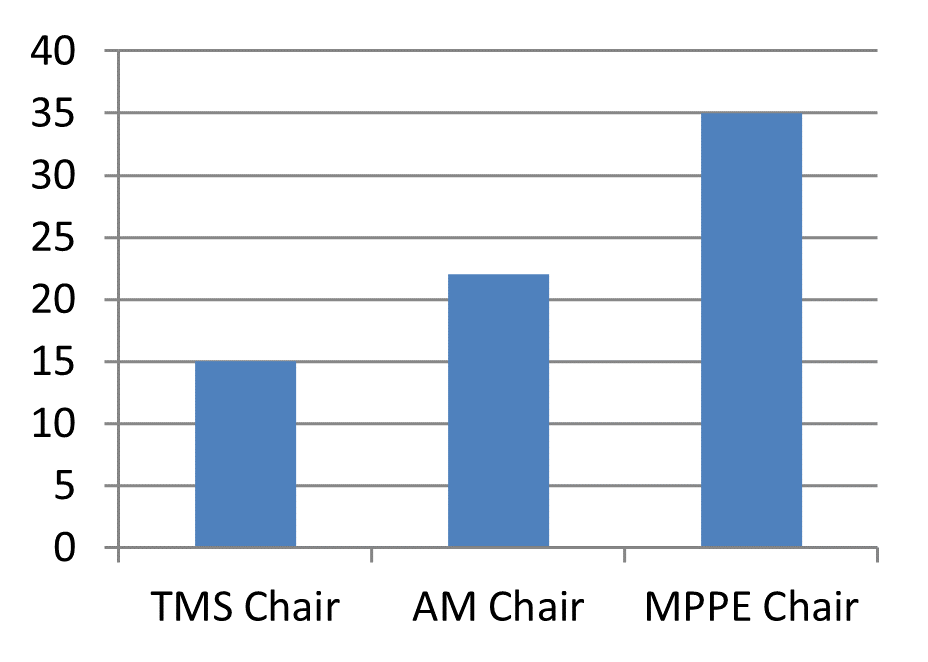FOREIGN LANGUAGE AS AN ELECTIVE COURSE IN NON-LANGUAGE FACULTIES
Abstract
Introduction
Nowadays it’s difficult to imagine a modern scientific research without any references to foreign sources. That’s why it seems extremely important to pay special attention to foreign language teaching at the engineering faculties of higher institutions in our country. A lot of LSP (language for specific purpose) teachers consider the problem of working on foreign literature as an essential [1], [2], [7].
The current foreign language curriculum for non-linguistic higher educational institutions provides a compulsory classroom training of foreign language in the volume of 340 hours for the 1-2 years of studying. The course is aimed to teach students to read the original literature in the specialty to obtain the required information, carry on a conversation, make notes and understand foreign speech aurally on the basis of the studied language material. However, due to the fact that the first-year students still do not study special subjects, at this particular stage of studying they are actually deprived of the opportunity to improve and use their language knowledge into practice immediately at least in the field of their specialty.
Therefore, even perfectly planned and organized academic work for undergraduates at the first years loses its practical meaning, unless it continues later, in the senior years.
As some modern authors note, the task of the university is not to provide students with the knowledge and skills only, but also to develop their constant habit of working with foreign literature in their specialty, as well as to transfer it to their future profession or research activities [2].
Methods
Since the article examines the specific experience of a certain faculty and foreign language teachers, it is worth mentioning that the institute, which has introduced this technique is engineering, so the word ‘technical’ is found throughout the present paper.
In the classroom students are supposed to build up a critical approach to the foreign literature, learn how to evaluate foreign technical experience [10]. This work should be carried out mainly on the so-called elective course under the guidance of experienced LSP teachers.
To achieve the objectives, first and foremost, it is necessary to coordinate co-working of the Foreign Languages Chair and major special chairs. In these circumstances all the special translation material is supposed to be related to the students practical training. It definitely requires careful selection of foreign specific articles. Working with sources like this, students would have an opportunity to be acquainted better with their direct specialty or field of study.
In the Institute of Mechanics and Power Engineering (The Mordovian State University, Saransk city, Russia) the literature search is carried out by professors, lecturers and teachers of special subjects, mostly the heads of courses and degree projects, together with teachers of foreign languages (LSP teachers). The latter ones are responsible for the methodological aspect in terms of the language.
Such collaboration brings enormous benefits to the students and the teachers as well. The foreign language teachers have the opportunity to expand their knowledge by exploring the particular issues of the specialists’ interest in this or that exact field.
On the other hand, the leading specialists of the university are able to assess the importance of obtaining the rapid scientific information from foreign sources in practice. It was rather difficult to establish such a contact between chairs, but gradually the mutual benefits of such cooperation have become so apparent that the foreign literature processing is conceived now as an integral component in carrying out coursework assignments and different projects.
For example, the Technology and Machine Service Chair (where course and diploma projects are aimed at the calculation of wear-out process of machine parts after prolonged use), the Agricultural Machinery Chair (dealing with the problem of optimizing the parameters of the working bodies of agricultural machines), and the Mobile Power-Producing Facilities Chair (working on the rationale diagnostic characteristics and parameters of the main components of agricultural machines) in collaboration with the Foreign Languages Chair have chosen the following materials in English: ‘Troubles in Braking System’, ‘Troubles of Steering Gear Components’, ‘Transmission Mechanism’, ‘Engines’, etc.
After the material selection the Chair provides its distribution among the students. Based on the scope of work, an article is able to be translated by several students. The task is determined by the rate of 25-35 hours per term. The Chair keeps an individual ledger card for each student. Students work with the texts independently, the Chair does not oblige them to attend classes and tutorials, but the task is mandatory.
The very nature of this co-working and elective courses is aimed to motivate the students, to create the positive atmosphere at the classes, where teachers help students to overcome the language difficulties and improve their practical skills. The psychological motivation plays a great role in the constructive solution of the problem.
Thus, at the elective course the LSP teacher should pay special attention to the following aspects:
- how to determine the context, read the material, find out the basic idea, relate the text with illustrations, graphs, diagrams, themes, etc., determine the category of unfamiliar words, work on the most commonly used abbreviations in the technical literature, word-reading formulas and physical signs.
- grammatical constructions, the ignorance of which complicates the disclosure of the text meaning (eg, the infinitive, participial, and gerundial constructions; Subjunctive Mood, Conditional Sentences; complex object and complex subject etc.).
Besides, during the elective course under the guidance of an experienced LSP teacher it is also possible to improve the earlier gained skills such as abstract, summary and essay writing.
In this way, during our experiment we have used such methods as theoretical (analysis, synthesis, generalization) and empirical (observation, testing) to gain certain results.
Results
A detailed examination of these aspects allows us to overcome the idea of considering tutorials as a series of disparate questions and answers and turns them into a strictly-designed, methodologically sound purposeful activity.
It is important that each task during the elective course provides for a specific result. The results of the work on foreign special literature necessarily take the form of a sample translation, writing an essay or review, oral presentations at scientific conferences, faculty meetings in the course or diploma project etc.
Therefore while organizing the elective course, the following sequence of the academic work has proved to be useful:
- LSP teacher approval in the individual student’s card
- the head of the special Chair approval in the individual student’s card
Thus, after double-checking of student’s work which is actually an organic part of his course project, the student may proceed to complete the task or project.
As the experience has showed the active involvement of students in this kind of activity expands their outlook, enrich their expertise, attaches to scientific work. After several years of this work our major chairs have already amassed an interesting factual material, performed by students in the form of translations, essays, reports, abstracts. All these materials and projects are stored on the major specific chairs as a unique store of knowledge for students and teachers. This additional material from foreign sources is widely used by the engineers of the chairs, graduates and employees of research institutes.
Now the number of students attending the elective course at the Institute of Mechanics and Power Engineering is increasing. We have compared the statistics of the last three years (see figure 1).
Fig. 1 – Elective course students
Consequently those students who have been working hard during the elective course form a sort of the Student Translation Bureau. Thus, the senior students are popularizers of technical expertise and now Science and Technology Abroad news stand is regularly issued on the basis of the Foreign Languages Chair.
Special major chairs, firstly very concerned of the new form of learning process, now are so interested in the open prospects of getting rapid information that they are also cooperating actively with the Foreign Languages Chair in the process of the literature selection, filing, storage and registration. Every chair has already registered a great number of students’ works (see figure 2).
Fig. 2 – Students’ works
Thus, the elective course has had a positive impact on the coursework level and the revival of the students’ and the major chairs scientific activity.
Conclusion
Having described the main principle of the optional form of studying as a part of the educational process based on the personal experience, it’s necessary to conclude: properly organized extracurricular activities like elective courses of foreign language for senior students are a powerful incentive. The courses supported by major chairs improve the practical language skills and motivate to the highest degree, because students have already formed the certain field of scientific interests by the senior years, that helps greatly to work on the foreign literature sources and process technical information in other languages.
References
Kargina E.M. Razvitie u studentov navyka besperevodnogo chtenija nauchno-tekhnicheskojj literatury [Development of students’ skill of untranslated reading of scientific and technical literature] [Electronic resource] / E. M. Kargina // Sovremennaja pedagogika [Modern Pedagogy]. – 2015. – No. 1. – URL: https://pedagogika.snauka.ru/2015/01/3316 (accessed: 14.04.2022) [in Russian]
Koryakovtseva N.F. Sovremennaja metodika organizacii samostojatel’nojj raboty izuchajushhikh inostrannyjj jazyk: Posobie dlja uchitelejj [Modern methods of organizing independent work of foreign language learners: A manual for teachers] / N.F. Koryakovtseva. - M. : Publishing House ARKTI, 2002. - 173 p. [in Russian]
Rubtsova M. G. Obuchenie chteniju anglijjskojj nauchnojj i tekhnicheskojj literatury. Leksiko-grammaticheskijj spravochnik [Learning to read English scientific and technical literature. Lexico-grammatical reference book] / M. G. Rubtsova. - M.: Nauka, 1989. - 288 p. [in Russian]
Byram M. Teaching and Assessing Intercultural Communicative Competence / M. Byram – Clevedon, Philadelphia: MultilingualMatters, 1997. – 124 p.
Darvin R. Investment and motivation in language learning: What’s the difference? / R. Darvin, B. Norton // Cambridge University Press - 2021 - PP. 1-12.
Hadley A.O. Teaching Language in Context: 3rd Edition. / A.O. Hadley // Oxford University Press – 2000 - PP. 348-353. Lozitskaya E. I. The English Language: Practical Hand-book for Teaching Students to Read and Understand Science Literature with the Use of Module Technology / E.I. Lozitskaya - Minsk : BGUIR, 2016 – 136 p.
Lozitskaya E. I. The English Language: Practical Hand-book for Teaching Students to Read and Understand Science Literature with the Use of Module Technology / E.I. Lozitskaya - Minsk : BGUIR, 2016 – 136 p.
Marsh D. Content and Language Integrated Learning / D. Marsh // The European Dimension – Actions, Trends and Foresight Potential. – OUP Publ., 2002. — 204 p.
Siegel J. Research into practice: Teaching notetaking to L2 students. / Cambridge University Press – 2020 - PP. 1-15.
Strevens P. Special-Purpose Language Learning: A Perspective. / P. Strevens // Wolfson College – Cambridge, 2008 - P. 145 -163.
Römer U. Applied corpus linguistics for language acquisition, pedagogy, and beyond / U. Römer // Cambridge University Press, - 2021 - PP. 1-12.
Rose H. Defining English Medium Instruction: Striving for comparative equivalence / H. Rose, E. Macaro // Cambridge University Press – 2021 - PP. 1-12.


